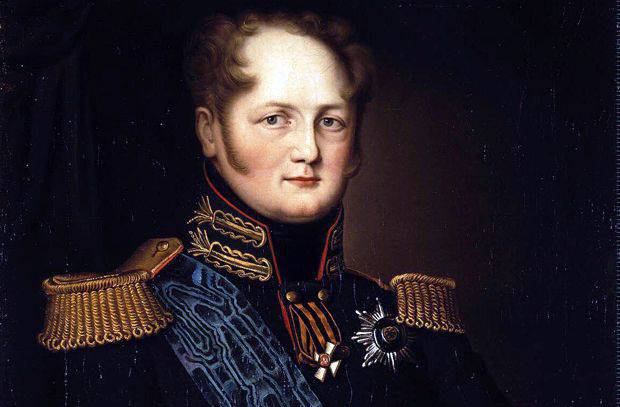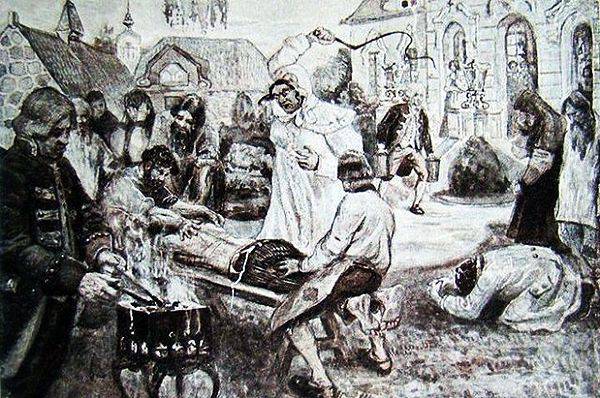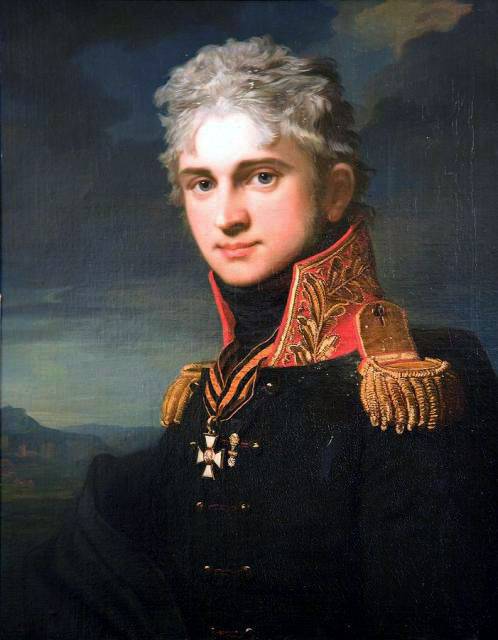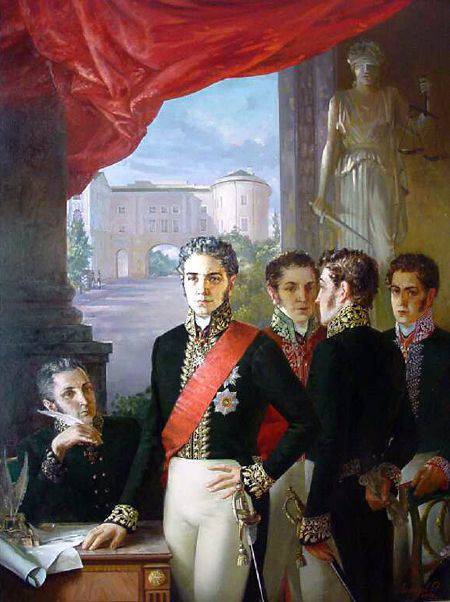Restructuring without publicity

Created by Alexander I, the Secret Committee gave the Russian stories fine example of "reform without reform"
Alexander I, who was on the throne as a result of the coup, immediately faced a "personnel shortage": there were almost no talented courtiers in his entourage who would help him to master the management of such a huge power. Some of the former courtiers (primarily Peter Palen and Nikita Panin) discredited themselves by participating in a conspiracy against Paul - and although they were left in the service and even crowned themselves with new successes, the sovereign could not involve them in those initiatives that he considered particularly significant. As for the experienced grandees of Catherine’s times, they were removed from control by his father and were also in very advanced years. The new king badly needed helpers who would share his liberal views and would be equally focused on reforming the country.
Promising to govern the country in the manifesto on the occasion of his accession to the throne “according to the laws and the heart of his grandmother, Catherine the Great,” Alexander sought to smooth out the sharpness of the confrontation between various groups within the ruling elite. The sovereign proved the seriousness of his intentions by returning many prisoners from exile and freeing them from prisons (including A.N. Radishchev, A.P. Yermolov, etc.). He also dismissed the most odious temporary rulers of the previous ruler: the state prosecutor Obolyaninov, the chief master Kutaisov and the Moscow chief of police chief Ertel. The sovereign destroyed the Secret Expedition, a body under the Senate engaged in political investigation. The secret expedition was also established by Catherine — for example, she was involved in the affairs of the participants in the Pugachev rebellion; however, it was under Pavel that this body turned into a merciless and often illogical car of reprisals against officials and officers suspected of disloyalty.
Alexander returned to the service of all those who were dismissed from her without a trial (there were about 15 thousand people), and in the manifesto about the abolition of the Secret Expedition, he announced that from now on "a reliable bulwark of abuse" and that "in a well-developed state all revenues should be obyomlemy, judged and punishable by the general force of the law. " The letters granted to the cities and nobility were restored — in particular, the nobles were again freed from the corporal punishments imposed by Paul. These measures of the first weeks of Alexander's reign seemed to return peace to the state. However, the king understood that much more radical reforms were required.
Country victorious feudalism
The internal state of Russia was at first glance quite favorable, and a less far-sighted monarch would probably really be satisfied with a government in the spirit of Catherine the Great, without seeking change. The basis of the economic development of the country was agriculture, which received a powerful impetus thanks to the territorial acquisitions of Catherine the Great: thanks to the security of the external borders reached under the empress, the vast black soil in the south and southwest of the empire was intensively colonized by landowners and peasants. It was under Catherine that Russia became one of the main granary of Europe: in just 15 years, by 1779, the export of wheat from the main ports of the country increased more than nine times.
However, agriculture remained feudal and archaic. By the beginning of the XIX century serfdom reached its apogee: 55% of peasants belonged to landowners and were completely powerless in legal terms: the gentlemen could sell them one by one and families, donate, ascribe to factories and factories, and punish without checking with any laws - beat with whips and bathogs even in the absence of any real guilt. The punishment to which the Senate and Catherine the Great sentenced the infamous Saltychikha, landowner Daria Saltykov, was an exceptional case: for the first time the ruling class was forced to listen to public opinion and imprison a stupid noblewoman from an old family who had become famous for the atrocities against the peasants in the monastery prison. The arrest of Saltychikha was a tribute to a new era - the empress, in correspondence with Voltaire and Diderot, sought to show that the concept of legality applies to all subjects without exception. However, in reality a process of this kind was a single fact: other noblemen could not be afraid that the state would deal with the infringement of their rights in relation to their “property”.

Serfdom was immoral: in such a form, as in Russia, in European countries it no longer existed, despite the fact that in some states, such as Austria, the peasant conscription was abolished only by the middle of the XIX century. However, he had another drawback: serfdom conserved outdated forms of exploitation of the peasants, hindering the development of the economy as a whole. The landowners still sought to increase incomes, reducing peasant holdings and expanding lordly plowing, raising dues and increasing serfdom. This led to one more dangerous consequence for the state - the aggravation of relations between landowners and peasants, which under Catherine led to a real peasant war. The unrest of landlord peasants in Russia was frequent - only in the first decade of the 19th century they happened around 80, and the government was sometimes forced to throw army units to suppress them. There was a need for reform and management — under Catherine, who reduced the number of colleges, a managerial confusion arose: even during unrest and major disasters, it was not clear which board was engaged in studying the situation and working out measures to correct it.
The main cause for alarm was even the problems listed above. If in the epoch of Catherine the nobility could enjoy the charms of "enlightened absolutism", then the reign of Paul showed how dangerous autocracy can be even for that class, which has always been considered as a pillar of the throne. That is why Alexander seriously thought about limiting autocracy. Rely in these plans, he could only on his closest friends.
Good intentions
Soon after coming to the throne, Alexander shared his plans with a childhood friend - Pavel Stroganov. In his youth, Stroganov visited revolutionary France and even was in the Club of Friends of the Law close to the Jacobins. Stroganov, however, found the idea of limiting the autocracy untimely, proposing first to reform the administration. In order to develop concrete measures, he proposed that the king create a special Secret (secret) committee. Alexander agreed with the idea and appointed Stroganov himself, as well as other nobles well familiar to him - Nikolay Novosiltsev, Adam Chartoryi and Viktor Kochubei to the committee. At the first meeting, the committee formulated the main tasks: to study the state of affairs in the country, reform the government mechanism and develop a constitution that would become the basis for the work of a number of independent state institutions.

Alexander saw the priorities somewhat differently than the members of the Secret Committee. First of all, he wanted to give the people some kind of charter like the French Declaration of the Rights of Man and the Citizen, in order to immediately announce their intentions. In addition, he was going to transform the Senate in order to turn this government body into a guarantor of civil rights. It is curious that this project was supported not only by the young friends of the king, but also by many statesmen who were in the years - they had suffered too much under the previous sovereign. The former favorite of Catherine, Prince Platon Zubov, even presented the Tsar with his own project about turning the Senate into an independent legislative body. The project, however, was rejected by the Tacit Committee, because it had nothing to do with a truly republican institution: Zubov assumed that the Senate would consist only of high-ranking officials and representatives of the highest nobility.
Another interesting project submitted to the committee by Alexander concerning internal transformations was compiled by Count Alexander Vorontsov and was a “chartered diploma to the people” - by analogy with the charters of Ekaterina chartered by the cities and nobility. An unusually brave project gave lower-class people guarantees of personal immunity — they could not be imprisoned and subjected to any punishment, except under the law. In addition, Vorontsov offered to give the peasants the right to own real estate. Having considered the draft, the members of the secret committee questioned that the people could really be given the rights provided for in the “letter”, given the state of the country, no matter how much they would have to be taken back.
The peasant question was one of the first to be concerned about the committee. In his project, Zubov suggested starting with a ban on owning courtyards: the state had to buy them out from the landlords. However, Novosiltsev rightly pointed out to the tsar that there was not enough money in the treasury to buy the courtyards. In addition, this army of liberated courtyards, who were not real peasants and who did not have land, would become a destabilizing factor. In another project on the peasant question, submitted by Admiral Nikolai Mordvinov, it was proposed to allow merchants, commoners and state-owned peasants to own property. Mordvinov proposed to limit the monarchy with the help of the nobility - to sell most of the official lands to the nobles, thus ensuring the strengthening of this estate and its ability, if necessary, to resist the king, who decided to rule not according to the laws. Mordvinov did not consider it possible to abolish serfdom "from above" and sought to create in the field of agriculture a market of hired labor, which would make serf labor simply unprofitable.
In fact, the Secret Committee limited itself to only one of Mordvinov’s proposals - he recognized the right to buy land for the third estate. Despite the fact that the members of the Secret Committee hated serfdom and believed that it was necessary to cancel it, none of them proposed a draft of its abolition, which Alexander would consider timely. As a result, the question was shelved - as it turned out, for entire 60 years.

Tacit - and useless
The Independent Committee has succeeded much more in reforming the management system. Following the establishment of the Indispensable Council, undertaken by Alexander himself - the body that would be engaged in the discussion of public affairs and decrees - the Petrine colleges were reorganized. In February, 1802, Chartoriyski presented a report where a system of separation of powers was proposed: it was proposed to strictly divide the competences of the supreme bodies of governance, supervision, court and legislation, accurately describing the role of each of them. After discussing the report and studying other projects and proposals in September of the same year, a manifesto was promulgated, according to which the colleges were transformed into eight ministries - foreign affairs, military and maritime, corresponding to the previous colleges, and also completely new ministries: internal affairs, finance, national education, justice and commerce. Unlike colleges, each of the ministries was managed by one person - the minister: this made the management of new bodies more operational, competent and responsible.
After discussion in the Secret Committee, a personal decree was issued on the rights and duties of the Senate. Zubov’s idea of transforming the Senate into a legislative institution was rejected. Instead, the Senate became the supreme body of state oversight of the administration and at the same time the highest court. He actually played the role of the government: for example, all the ministries were responsible to him. Decrees of the Senate were to be executed by all, as well as decrees of the sovereign. Only the sovereign had the right to interfere in the work of the Senate; even if the prosecutor general found any violations in the work of the Senate, he could only report them to the sovereign, and for unjust complaints against the Senate to the sovereign, the perpetrators should have been prosecuted. Senators convicted of a crime had the right to judge only the Senate itself.
In spite of the fact that Alexander I and his closest friends managed to get rid of the administrative Augean stables arranged by Catherine and to a lesser extent Paul, to a certain extent, the work of the Secret Committee is hardly successful. In fact, it lasted only a year: since May 1802, the committee has never met again on important issues. The discussion of reform measures was entrusted to the Committee of Ministers, which was chaired by the king himself. Alas, the Secret Committee did not fulfill the tasks for which it was created: he did not solve either the question of the constitution or the question of serfdom. In general, it is an excellent example of "reform without reform" - one of the favorite strategies of domestic converters of all time. However, for Alexander himself, participation in his work became a management school - it had for him approximately the same meaning as funny regiments for Peter I: Peter learned to fight, Alexander - to manage a huge state, faced with difficult problems.
Information